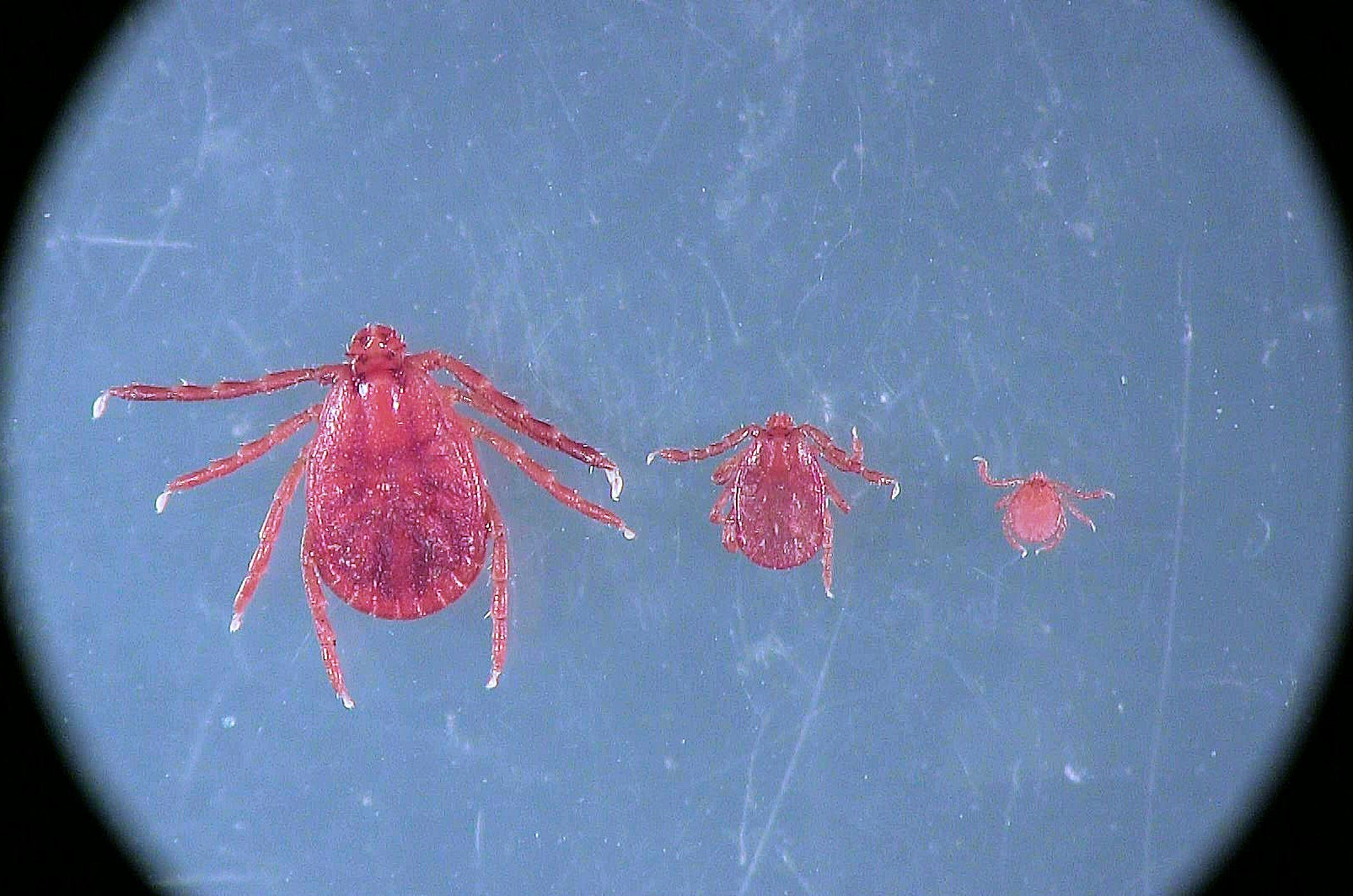
Support for Research and Education Provided by the Foundation for Food and Agriculture Research
KNOXVILLE, Tenn. — The invasive Asian longhorned tick (Haemaphysalis longicornis), a foreign parasite that can transmit a variety of bloodborne pathogens, is spreading rapidly in the United States, and this year Tennessee was identified as among the 12 states this pest calls home. A new $150,000 grant from the Foundation for Food and Agriculture Research should help scientists with the University of Tennessee Institute of Agriculture learn more about the tick and help identify how farmers, ranchers and pet owners can protect their animals.
As the name implies, the Asian longhorned tick is native to China, Japan, Korea and other parts of Asia. The tick arrived in the U.S. in 2017 and was initially found in locations that did not have a clear connection to Asia. Experts are not certain how the tick came to the states. As of September, the parasite had been detected in 12 states, from Connecticut to Arkansas.
The Asian longhorned tick multiplies quickly thanks to asexual reproduction and is capable of rapid infestation of fields and host animals. One female can start a population, and to date no males have been found in the U.S. The ticks feed in large population clusters, overwhelming their victims, and have surprised observers by extracting enough blood to cause anemia in grown livestock and death in young animals.
“The Asian longhorned tick landed in the U.S. seemingly without explanation and has moved quickly though New England, the Mid-Atlantic and now the Southeast. Adding to our concern, not much is known about this parasite,” said Sally Rockey, FFAR executive director. “We have a rare opportunity to address this infestation now, before the Asian longhorned tick begins spreading pathogens. This grant is taking the first steps to curb the threat by mapping its spread and arming farmers with mitigation strategies.”
Rebecca Trout Fryxell, a medical and veterinary entomologist in the UTIA Department of Entomology and Plant Pathology, serves as the lead researcher for this project. Other UTIA departments involved include animal science; forestry, wildlife and fisheries; agricultural and resource economics; agricultural leadership, education and communications; and researchers with the College of Veterinary Medicine. The UT researchers are collaborating with academic, government and industry stakeholders to develop a tick-surveillance network. Members of this network include Tennessee Departments of Agriculture and Health, Tennessee Wildlife Resources Agency, and U.S. Department of Agriculture (APHIS, ARS, Forest Service, and Veterinary Services), as well as local animal shelters, producers, livestock markets and Extension agents. The researchers are also enhancing awareness, evaluating control methods and identifying predictors associated with the pest’s presence, and soon to come will be prevention, detection and response strategies, as well as educational materials to help detect and eliminate the Asian longhorned tick. This project will enhance awareness about this pest and empower stakeholders to make informed pest-management decisions.
“Funding from FFAR, along with technical and resource support from our partners, has helped us detect this invasive tick species in eight Tennessee counties,” said Trout Fryxell. “We are finding them on both canines and cattle. By working with local producers, we are learning more about the life cycle of this species, and specifically when and where it is found on a farm. To address this threat, we have been busy increasing awareness.”
Trout Fryxell says the work will accelerate next year. “We are excited to start identifying solutions in the spring, when nymph populations are expected to be most problematic.”
The year-long research effort is funded through FFAR’s Rapid Outcomes from Agriculture Research (ROAR) program, which rapidly funds research and outreach in response to emerging or unanticipated threats to the nation’s food supply or agricultural systems. The University of Tennessee provided matching funds to support FFAR’s contribution to the research.
###
Foundation for Food and Agriculture Research
The Foundation for Food and Agriculture Research (FFAR), a 501(c)(3) nonprofit organization originally established by bipartisan Congressional support in the 2014 Farm Bill, builds unique partnerships to support innovative and actionable science addressing today’s food and agriculture challenges. FFAR leverages public and private resources to increase the scientific and technological research, innovation, and partnerships critical to enhancing sustainable production of nutritious food for a growing global population. The FFAR Board of Directors is chaired by Mississippi State University President Mark Keenum, Ph.D., and includes ex officio representation from the U.S. Department of Agriculture and National Science Foundation.
Connect: @FoundationFAR | @RockTalking
The University of Tennessee Institute of Agriculture
Through its land-grant mission of research, teaching and extension, the University of Tennessee Institute of Agriculture touches lives and provides Real. Life. Solutions. utia.tennessee.edu.